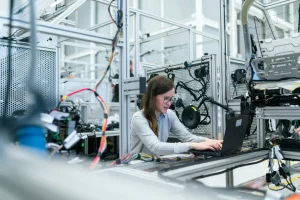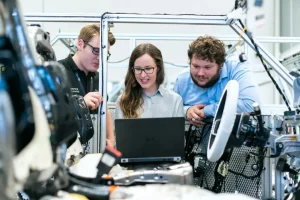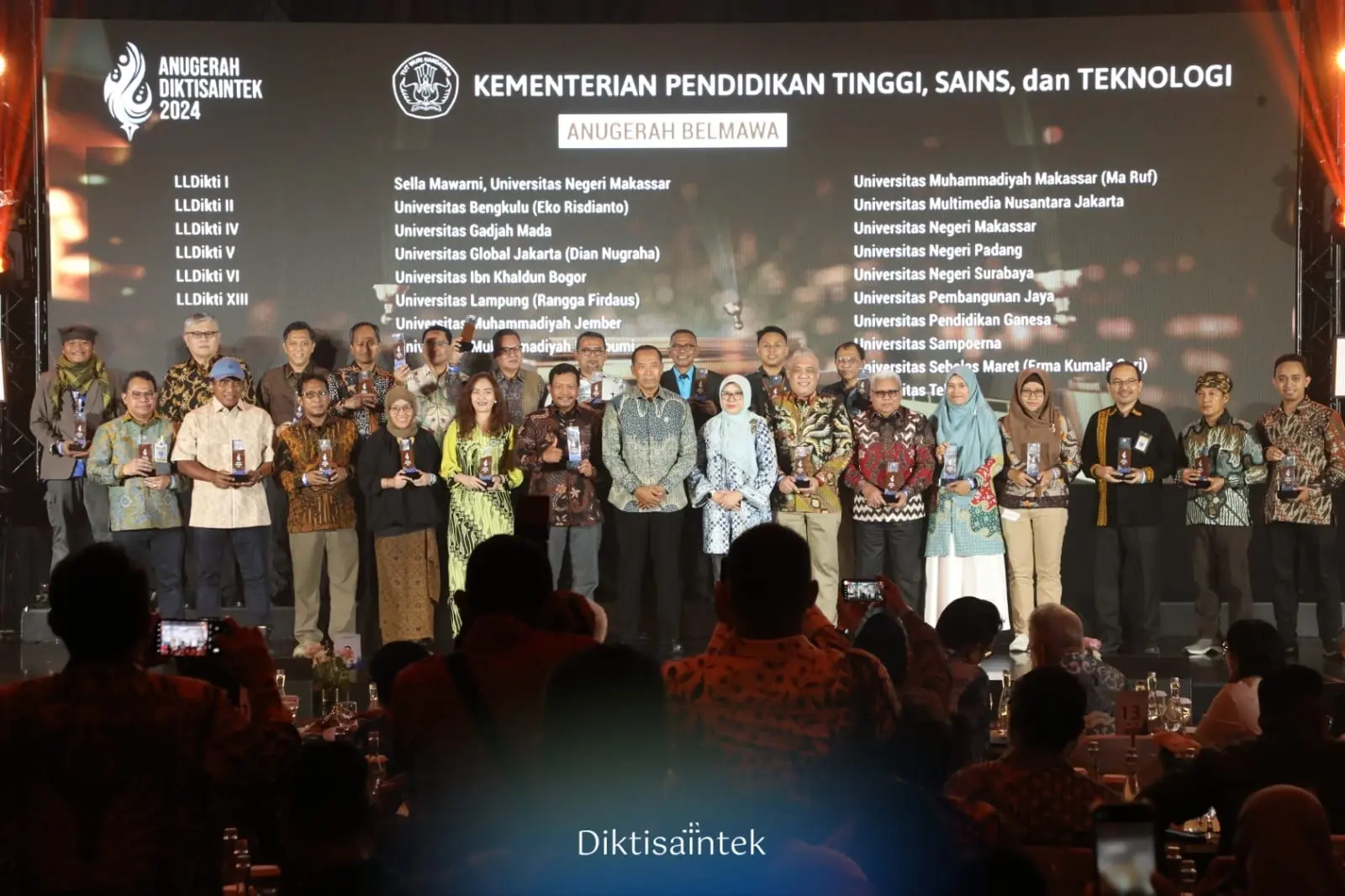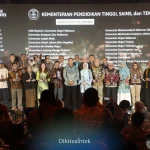26 May 2023
The Benefits of Pursuing a Degree in Engineering & Technology
Articles,

Indonesia is undergoing rapid development, and there is a high demand for qualified engineers and technologists to design, construct, and maintain infrastructure projects such as roads, bridges, buildings, and water supply systems. Engineering knowledge is crucial for ensuring the country’s infrastructure development meets international standards and promotes economic growth.
The manufacturing and industrial sectors play a significant role in Indonesia’s economy. Engineering and technology degrees are essential for developing and improving industrial processes, optimizing production efficiency, and enhancing product quality. Engineers and technologists contribute to the growth of the automotive, electronics, textiles, and food processing industries.
The digital revolution is transforming industries across the globe. In Indonesia, there is a growing need for professionals with expertise in computer science, software development, data analytics, and cybersecurity. Engineering and technology degrees provide the foundation for individuals to thrive in the digital era and contribute to the country’s digital transformation efforts.
Engineering and technology degrees foster a culture of innovation and research. By studying these disciplines, individuals gain the knowledge and skills to solve complex problems, develop new technologies, and contribute to scientific advancements. This promotes technological progress and helps Indonesia stay competitive on a global scale.
Engineering & Technology Degree in Indonesia
In Indonesia, various engineering and technology degree programs are available at universities and higher education institutions. Some popular fields of study include:
1. Electrical Engineering: Focuses on studying electrical systems, power generation, electronics, telecommunications, and computer systems.
2. Mechanical Engineering: Covers the study of mechanics, thermodynamics, fluid dynamics, materials science, and manufacturing processes.
3. Civil Engineering: Involves the design, construction, and maintenance of infrastructure projects such as buildings, bridges, roads, and water supply systems.
4. Industrial Engineering: Concentrates on optimizing complex systems and processes in industries, including production planning, logistics, quality control, and supply chain management.
5. Chemical Engineering: Focuses on applying chemistry, physics, and biology principles to design and operate chemical processes in industries such as petrochemicals, pharmaceuticals, and food processing.
6. Computer Science and Engineering: Combines computer science principles with engineering methodologies to develop software, design computer systems, and solve complex computing problems.
7. Information Technology: Focuses on applying computer-based technologies to manage and process information efficiently, including software development, database management, and network administration.
Engineering and technology degrees offer individuals the opportunity to develop problem-solving skills, drive innovation, apply knowledge in practical settings, adapt to changing demands, meet global job market requirements, and make a meaningful contribution to society.
The Benefits of Pursuing a Degree in Engineering & Technology
Pursuing a degree in engineering and technology provides a host of advantages.

Firstly, it opens various career opportunities across industries, including aerospace, automotive, energy, telecommunications, and software development. These fields offer competitive salaries and long-term job security.
Secondly, an engineering and technology education equips individuals with strong problem-solving skills and a foundation in critical thinking. Graduates are trained to analyze complex issues, design innovative solutions, and adapt to emerging technologies. This skill set is highly transferable and valuable in various professional and personal contexts, allowing continuous learning and growth throughout one’s career.
Additionally, engineering and technology professionals can impact society by developing sustainable solutions, improving infrastructure, advancing healthcare technologies, and addressing global challenges.
The collaborative nature of these fields fosters effective teamwork and communication skills while offering entrepreneurial opportunities and access to an international job market, making it a rewarding and versatile choice for those seeking a fulfilling and successful professional journey.
Sampoerna University
Sampoerna University is a fully accredited university in Indonesia that offers the best choice for those seeking excellent international education. Sampoerna University is a private, non-denominational, non-profit university licensed and certified by the Republic of Indonesia’s Ministry of Education, Culture, Research, and Technology.
Formed according to national and international standards, Sampoerna University is qualified to contribute to society through education substantially.
The Faculty of Engineering and Technology (FET) at Sampoerna University committed to building STEAM (Science, Technology, Engineering, Arts, and Math) competence. Our approach fosters adaptability, collaboration, creativity, and strong communication skills. According to industry experts, our policy makes our graduates the most competitive in Indonesia.
Faculty of Engineering and Technology offers the following degree program:
Industrial Engineering, Mechanical Engineering, Visual Communication Design, Computer Science, and Information Systems.
The curriculum offered by FET at Sampoerna University has been developed to meet national requirements and exceed them. In partnership with leading American universities, students can complete a double degree (engineering) or degree supplements (computer science and creative digital design). All students graduate from FET with both national degrees and American credentials.
9 of 10 graduates get employed three months after graduation*. Immediately register to participate in the new student admissions process for the 2023-2024 year here. Our Admission Team will contact you soon to provide more detailed information.
Schedule with us whenever you want to visit campus tours on-site or virtual!
*Based on graduating cohort 2020-2022





